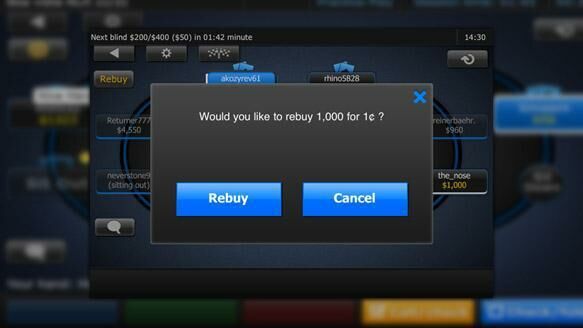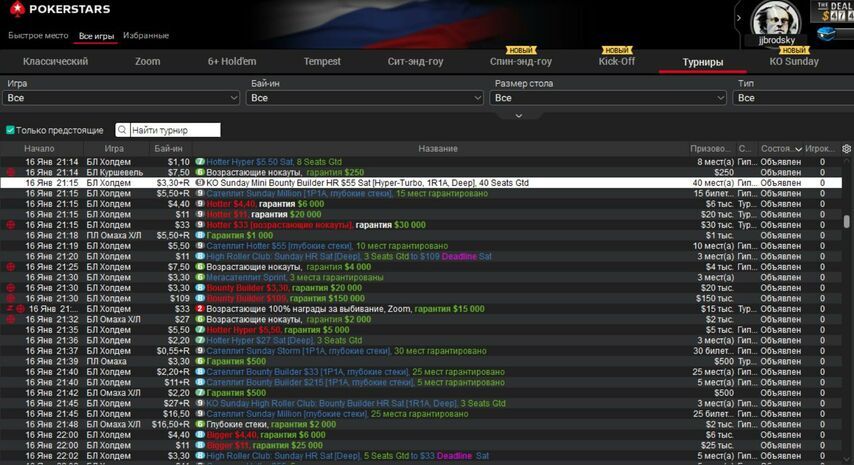Ever wondered what a rebuy is in poker? A rebuy is when players who have lost their initial buy-in can purchase new chips during a game. This option is available during different tournament phases or in cash games. You could only be able to rebuy once during the tournament, or you might be able to rebuy several or perhaps unlimited times. Tournaments restrict rebuys to a certain time frame, such as until the first break afterwards is a standard freezeout tournament. If you bust in a freezeout you are out of the competition. It's crucial to review the tournament's rules to ascertain when the rebuy period ends.
In this comprehensive guide, we will delve deep into all you need to know about rebuys in poker, uncovering their significance, strategies, pros and cons, and much more.

Rebuy Tournaments Strategy
Rebuy tournaments enable players to buy extra chips, typically available when they've lost all their chips or possess a stack equal to or smaller than the initial stack. In these tournaments, players can rebuy chips for a specific number of blind levels or a predetermined time frame. Once this duration concludes, players can opt to make an add-on. The cost of each rebuy usually matches the initial buy-in (minus the rake), and the add-on is the same.

Rebuy tournaments can be profitable with adequate self-control and good bankroll management. However, for those prone to tilting or gambling their chips away, it can turn into a distressing experience. If you lack restraint, multiple rebuys can swiftly accumulate, resulting in financial losses.
Reaching the final table may become necessary to break even. Poker players should establish personalized rules for rebuying, instituting a cap on the frequency and steadfastly abiding by it. We recommend rebuying up to three times.

Rebuys hold the allure of boosting your chip count and building a substantial stack once the rebuy phase concludes. Achieving a sizeable stack involves calculated risks during this period. While adopting conservative and tight gameplay is feasible, it's not advisable. Your potential to win depends on receiving value for your premium hands – while this scenario can occasionally arise, risk-taking during rebuys is more beneficial.
Recognizing that opponents will adopt broader hand selections is essential, prompting you to widen your range. Failing to do so would equate your gameplay to a standard freezeout tournament structure.
In the exciting world of online poker, platforms like GG Poker, AmericasCardroom, and 888 Poker offer a unique twist with rebuys. They let you turn setbacks into comebacks by rejoining the game with renewed chips. The thrill of strategic play meets the convenience of virtual tables, enhancing your poker experience.
When to Make Rebuys
In a tournament, rebuys are allowed for as long as registration is open. In a typical tournament structure, that is usually after one hour to 90 minutes online, while some live events will have registration open for 3-4 hours. Since stacks are often deeper in live, push-folding will be less significant to you. Thus it's time to employ standard tournament tactics at this point. Daniel Negreanu holds the rebuy record in WSOP tournaments after rebuying 48 times in 2006 $1000 buy-in Event #34: No-Limit Holdem.

Cash Games Rebuy Strategy
In cash games, players have the liberty to replenish their chip stack whenever they choose, even if they still haven’t depleted their stack completely. This practice is common as players acquire additional chips when their stack size diminishes. Typically, there's a set upper limit on the number of chips a player can rebuy. For instance, if a table's highest chip buy-in is 200 big blinds, meaning a player cannot repurchase chips if their stack surpasses this threshold. A minimum requirement for the table might also exist, which could necessitate increasing the rebuy amount to fulfill this rule.
Rebuying chips to attain a specified limit is routine whenever our chip stack diminishes past a certain point. As an illustration, should our chip stack fall below 100 big blinds (bb), we will purchase additional chips to push it back up to 100 bb. It is crucial because the optimal approach can vary significantly based on the chip stack's depth. Many players strive to excel at playing with a 100-bb stack and consequently allocate most of their playing time to that particular stack depth.
Responsible rebuying involves assessing your bankroll and game strategy. Opting for a rebuy or two in the initial stages of a session can be reasonable, helping you weather the volatility of poker's unpredictable nature. However, constantly reloading after losing your stack without a clear plan can lead to reckless decisions and financial strain. Remember, poker is a blend of skill, strategy, and patience.
| Rebuy Strategy | Reason |
|---|---|
| Conservative Approach | Use rebuys cautiously, focusing on solid starting hands and calculated plays to avoid unnecessary rebuys |
| Aggressive Approach | Leverage the rebuy option to push your opponents into uncomfortable situations and accumulate chips aggressively. |
| Situational Awareness | Adjust your rebuy strategy based on table dynamics, recognizing when to capitalize on opponents' weaknesses. |
| Bankroll Management | Set clear limits on the number of rebuys to avoid overstretching your bankroll and compromising your strategy. |
| Observation and Adaptation | Continuously assess the effectiveness of your rebuy strategy and make adjustments as the tournament progresses. |
Rather than reflexively rebuying, meaning take moments to analyze your gameplay, identify patterns, and adapt your approach accordingly. Sometimes, a break from the table might offer more insight than an immediate rebuy. Ultimately, the correct number of rebuys varies from person to person, but exercising self-discipline and staying mindful of your bankroll are constants.
Significance and Impact of Rebuys in Poker
- Second Chances: One of the key reasons for introducing rebuys is to provide players with a second opportunity. Poker tournaments may be unpredictable, and one bad hand might result in an early exit. Rebuys guarantee that a player's tournament journey does not end too soon.
- Increased Prize Pools: If someone rebuys, then the prize pool increases for everyone, and the payouts increase. Due to the additional buy-ins, rebuy events often have bigger prize pools. It draws more participants, and those who make it through the rebuy phase may win more money.
- Dynamic Gameplay: Rebuys add a degree of strategic complexity to the game's dynamic gameplay. After bursting out, players must choose to rebuy immediately or wait until a better chance presents itself. Both their chip stack and how their opponents see their playing style may be affected by this choice.
- Increased Variance: Rebuy games can sometimes shift the focus from skill to who has a bigger bankroll to reload each time they lose their stack. Skillful players might be overshadowed by those willing to invest repeatedly in the tournament. The excitement of rebuys can lead to impulsive decisions. Players might spend more than anticipated, potentially straining their bankroll if they throw caution to the wind. The more you make rebuys, the higher the probability of having bigger downswings meaning players who make multiple rebuys incur bigger losses.
| Table Position | Optimal Rebuy Strategy |
|---|---|
| Early Position | Cautious Approach: Rebuy with stronger hands or when blinds threaten the stack size |
| Middle Position | Moderate Approach: Gauge opponents' actions and adjust rebuy decisions accordingly. |
| Late Position | Tactical Approach: Leverage positional advantage to make informed rebuy choices. |
Summary
Rebuys are a fundamental aspect of poker tournaments, offering players a chance to rebound from early setbacks and engage in dynamic, strategic gameplay. Understanding the significance of rebuys, when and how to rebuy in poker, employing effective strategies, and balancing their pros and cons can significantly enhance your poker experience. Remember, whether you're a rebuy enthusiast or prefer a more conservative approach, the key to success lies in maintaining a cool head, honing your skills, and embracing the multifaceted nature of poker tournaments.


















